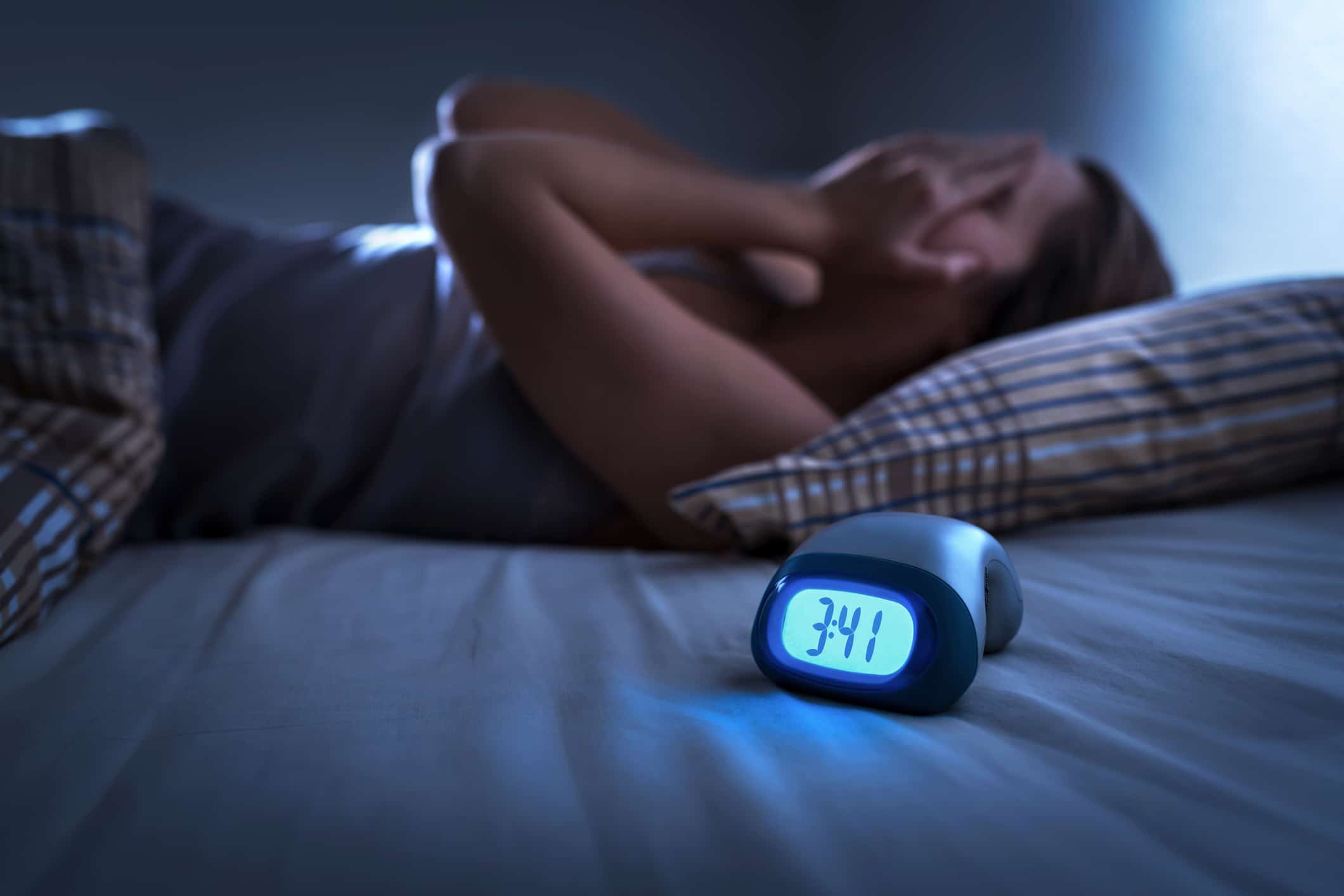
The VA disability rating for insomnia ranges from 0% to 100%, depending on the severity and impact on your daily life. This article provides a comprehensive guide to understanding how the VA rates insomnia, factors influencing the rating, and what veterans need to know to navigate the claims process effectively. Insomnia can significantly affect a veteran’s well-being, and understanding the VA’s rating system is crucial for obtaining the benefits you deserve.
Are you struggling with sleepless nights and wondering how it affects your VA disability rating? Insomnia can be more than just an inconvenience; it can be a debilitating condition, especially for veterans. At VetsForever, we understand the challenges veterans face when seeking VA benefits for insomnia. In this article, we’ll break down the complexities of the VA rating system for insomnia, providing you with clear, actionable information. You’ll learn about:
- How the VA rates insomnia
- The factors that influence your disability rating
- What evidence you need to support your claim
- Common pitfalls to avoid
What is the VA Rating for Insomnia?
How Does the VA Define Insomnia for Rating Purposes?
The VA defines insomnia as a sleep disorder characterized by difficulty falling asleep, staying asleep, or experiencing non-restorative sleep, leading to significant distress or impairment in daily functioning. For rating purposes, the VA considers the symptoms, severity, and impact on a veteran’s occupational and social functioning to determine the appropriate disability rating. This definition is crucial because it sets the stage for evaluating how insomnia affects a veteran’s life, which directly influences the disability rating assigned.
The VA considers insomnia a sleep disturbance that can have far-reaching effects. To accurately assess its impact, the VA looks at several key indicators:
- Frequency and duration of sleep disturbances
- Impact on daytime functioning, such as fatigue, concentration, and mood
- Whether the insomnia is chronic (long-lasting) or acute (short-term)
- Any co-existing conditions, such as depression or anxiety, that might be linked to the insomnia
What is the VA Disability Rating for Insomnia?
The VA disability rating for insomnia can range from 0% to 100%, with specific criteria outlined in the VA Schedule for Rating Disabilities. A 0% rating means that while insomnia is diagnosed, it doesn’t significantly impair daily functioning. Higher ratings, such as 50%, 70%, or 100%, are assigned when insomnia severely impacts a veteran’s ability to maintain employment or engage in social activities. The specific rating depends on the severity of symptoms and their impact on a veteran’s life.
The VA assigns disability ratings based on the severity of your symptoms and how they affect your ability to function. Here’s a breakdown of the common ratings:
- 0% Rating: A diagnosis of insomnia exists, but the symptoms do not significantly impair daily functioning or require continuous medication.
- 10% Rating: Sleep impairment is mild, with occasional difficulty falling or staying asleep. Symptoms are well-controlled with medication or other therapies.
- 30% Rating: Sleep impairment is moderate, with frequent difficulty falling or staying asleep. Daytime fatigue and impaired concentration are common.
- 50% Rating: Sleep impairment is severe, leading to significant daytime impairment. Symptoms are difficult to control with medication or other therapies, affecting social and occupational functioning.
- 70% Rating: Sleep impairment is very severe, with near-constant sleep disturbances. This rating often involves co-existing mental health conditions and significant impairment in social and occupational functioning.
- 100% Rating: The veteran experiences total occupational and social impairment due to chronic sleep disturbances, often accompanied by severe mental health symptoms. This rating is reserved for the most debilitating cases.
What is the Maximum VA Rating for Insomnia?
The maximum VA rating for insomnia is 100%. This rating is reserved for veterans whose insomnia results in total occupational and social impairment. This means that the insomnia is so severe that it prevents the veteran from maintaining employment or engaging in meaningful social activities. It often involves other significant mental health symptoms, such as severe anxiety or depression, further complicating the veteran’s condition.
A 100% rating for insomnia is not easily obtained. The VA requires substantial evidence demonstrating that the insomnia has a profound and debilitating effect on your life. This includes:
- Medical records documenting the severity and duration of your symptoms
- Statements from family members or friends detailing how your insomnia affects your daily life
- Evidence of failed treatments and therapies
- A nexus letter from a medical professional linking your insomnia to your military service (Remember, the veteran’s words are a key factor in service connection, and VetsForever will assist you in drafting one up for free.)
How Does the VA Rate Insomnia?
What Factors Does the VA Consider When Rating Insomnia?
The VA considers several factors when rating insomnia, including the severity and frequency of sleep disturbances, the impact on daytime functioning (such as fatigue and concentration), and the presence of any co-existing conditions like depression or anxiety. The VA also evaluates how well the insomnia responds to treatment and whether it affects the veteran’s ability to work or maintain social relationships. These factors collectively determine the overall disability rating.
The VA evaluates several critical aspects to determine the appropriate disability rating for insomnia:
- Severity of Symptoms: How often do you experience difficulty falling asleep or staying asleep? How long do these sleep disturbances last?
- Impact on Daytime Functioning: Do you experience excessive fatigue, impaired concentration, or mood disturbances during the day? How do these symptoms affect your ability to perform daily tasks?
- Co-Existing Conditions: Do you have any other mental health conditions, such as depression, anxiety, or PTSD, that may be linked to your insomnia?
- Response to Treatment: Have you tried any treatments for your insomnia, such as medication, therapy, or lifestyle changes? How effective have these treatments been?
- Occupational and Social Impairment: Does your insomnia affect your ability to work or maintain social relationships? Have you had to take time off work due to your symptoms?
How Does the VA Use the General Rating Formula for Mental Disorders?
Insomnia is often rated under the General Rating Formula for Mental Disorders, as it frequently co-occurs with other mental health conditions. This formula assesses the overall impact of mental disorders on a veteran’s ability to function in various aspects of life, including work, social interactions, and self-care. The VA uses this formula to assign a disability rating based on the collective severity of all mental health symptoms, ensuring a comprehensive evaluation of the veteran’s condition.
The General Rating Formula for Mental Disorders is a comprehensive framework that the VA uses to evaluate the overall impact of mental health conditions. It considers a range of factors, including:
- Impairment in Thought Processes: Are your thought processes clear and organized, or do you experience confusion, disorientation, or difficulty concentrating?
- Disturbances of Mood: Do you experience persistent feelings of sadness, anxiety, or irritability? How do these mood disturbances affect your daily life?
- Deficiencies in Impulse Control: Do you struggle with impulsive behaviors, such as reckless spending, substance abuse, or aggression?
- Difficulties in Establishing and Maintaining Effective Relationships: Do you have difficulty forming or maintaining meaningful relationships with others?
- Deterioration in Work or School Performance: Has your insomnia and related mental health symptoms affected your ability to perform at work or school?
What Evidence is Needed to Support an Insomnia VA Claim?
To support an insomnia VA claim, veterans need to provide comprehensive evidence, including medical records documenting the diagnosis and severity of insomnia, statements from doctors linking the condition to military service (nexus letters), and personal statements detailing how insomnia affects their daily life. Buddy statements from family members or fellow veterans can also strengthen the claim by providing additional perspectives on the veteran’s condition and its impact.
To build a strong VA claim for insomnia, you’ll need to gather and submit the following evidence:
- Medical Records: Documented diagnosis of insomnia from a qualified healthcare provider
- Nexus Letter: A statement from a medical professional linking your insomnia to your military service. Remember, the veteran’s words are a key factor in service connection, and VetsForever will assist you in drafting one up for free.
- Personal Statements: Detailed accounts of how insomnia affects your daily life, including work, social activities, and relationships
- Buddy Statements: Statements from family members, friends, or fellow veterans who can attest to the impact of your insomnia
- Sleep Studies: Results from sleep studies, if available, to objectively measure the severity of your sleep disturbances
Common Challenges and How to Overcome Them
How to Establish a Service Connection for Insomnia
Establishing a service connection for insomnia involves demonstrating a clear link between the veteran’s military service and the development of insomnia. This can be achieved by providing evidence of an event or condition during military service that likely caused or aggravated the insomnia. Medical records, service records, and statements from medical professionals are crucial in establishing this connection. A strong nexus letter from a doctor is particularly important in linking the insomnia to military service.
Establishing a service connection for insomnia can be challenging, but it’s not impossible. Here are some strategies to increase your chances of success:
- Identify a Specific Event or Condition: Pinpoint a specific event or condition during your military service that you believe caused or aggravated your insomnia. This could be combat exposure, traumatic experiences, or a stressful work environment.
- Gather Supporting Documentation: Collect medical records, service records, and other documents that support your claim. This might include records of medical treatment during your service, performance evaluations, or witness statements.
- Obtain a Nexus Letter: Work with a medical professional to obtain a nexus letter that clearly links your insomnia to your military service. This letter should explain the medical basis for the connection and provide a strong rationale for the VA to grant your claim.
What If Insomnia is Secondary to Another Condition?
Insomnia can be secondary to another service-connected condition, such as PTSD or chronic pain. In such cases, the veteran can claim insomnia as a secondary condition, meaning it resulted from the primary service-connected disability. To do this, the veteran must provide medical evidence showing the relationship between the primary condition and the insomnia. This approach can be beneficial, especially if directly connecting insomnia to military service is challenging.
Insomnia is frequently linked to other mental health conditions, such as PTSD, depression, and anxiety. If your insomnia is secondary to another service-connected condition, here’s how to approach your claim:
- Identify the Primary Condition: Determine which service-connected condition is causing your insomnia. This could be PTSD, chronic pain, or another mental health disorder.
- Provide Medical Evidence: Gather medical records and statements from medical professionals that clearly link your insomnia to the primary condition. This evidence should demonstrate that your insomnia is a direct result of the primary condition.
- Strengthen Your Claim: Include personal statements and buddy statements that describe how your primary condition affects your sleep. This can help the VA understand the full impact of your symptoms.
How to Handle a Denied Insomnia Claim
If an insomnia claim is denied, veterans have the option to appeal the decision. The appeals process involves submitting additional evidence, requesting a hearing, or seeking a review of the decision by a higher authority within the VA. It is crucial to understand the reasons for the denial and address them specifically in the appeal. Seeking assistance from a VA-accredited attorney or advocate can significantly improve the chances of a successful appeal.
If your insomnia claim is denied, don’t lose hope. Here are the steps you can take to appeal the decision:
- Understand the Reasons for Denial: Carefully review the VA’s decision letter to understand why your claim was denied. This will help you identify any weaknesses in your claim and gather additional evidence to support your appeal.
- Gather Additional Evidence: Collect any new evidence that might strengthen your claim, such as additional medical records, nexus letters, or personal statements.
- File a Notice of Disagreement: File a Notice of Disagreement (NOD) with the VA to formally initiate the appeals process. Be sure to file your NOD within one year of the date of the VA’s decision.
- Seek Assistance from a VA-Accredited Attorney or Advocate: Consider seeking assistance from a VA-accredited attorney or advocate who can help you navigate the appeals process and represent your interests.
Conclusion
Understanding the VA rating for insomnia is essential for veterans seeking disability benefits. The VA considers various factors, including the severity of symptoms, impact on daily functioning, and connection to military service, when assigning a disability rating. By gathering comprehensive evidence and understanding the claims process, veterans can increase their chances of receiving a fair and accurate rating. Remember, VetsForever is here to support you every step of the way, providing guidance and assistance to ensure you receive the benefits you deserve. If talking about medical nexus, we need to strongly emphasize that it does not mean to get a nexus letter. A statement support of claim is just as important if not weighted more than a costly nexus letter. the veterans words about the situation is a key factor in service connection and VetsForever will assist you drafting one up for free.
Insomnia can significantly impact your quality of life, and veterans deserve recognition and support for the challenges they face. By understanding the VA rating system and building a strong claim, you can obtain the benefits you need to manage your condition and improve your overall well-being. Don’t hesitate to seek assistance from VetsForever to navigate the complexities of the VA claims process and ensure your voice is heard.
Key Takeaways
What is the VA disability rating for insomnia based on?
The VA disability rating for insomnia is based on the severity of symptoms, the impact on daily functioning, and the presence of any co-existing conditions. The VA uses the General Rating Formula for Mental Disorders to assess the overall impact of mental health symptoms, including insomnia, on a veteran’s ability to function in various aspects of life.
How can I establish a service connection for insomnia?
To establish a service connection for insomnia, you need to demonstrate a clear link between your military service and the development of insomnia. This can be achieved by providing evidence of an event or condition during military service that likely caused or aggravated the insomnia. Medical records, service records, and statements from medical professionals are crucial in establishing this connection. A strong nexus letter from a doctor is particularly important in linking the insomnia to military service. Remember, the veteran’s words are a key factor in service connection, and VetsForever will assist you in drafting one up for free.
What should I do if my insomnia claim is denied?
If your insomnia claim is denied, you have the option to appeal the decision. The appeals process involves submitting additional evidence, requesting a hearing, or seeking a review of the decision by a higher authority within the VA. It is crucial to understand the reasons for the denial and address them specifically in the appeal. Seeking assistance from a VA-accredited attorney or advocate can significantly improve the chances of a successful appeal.

